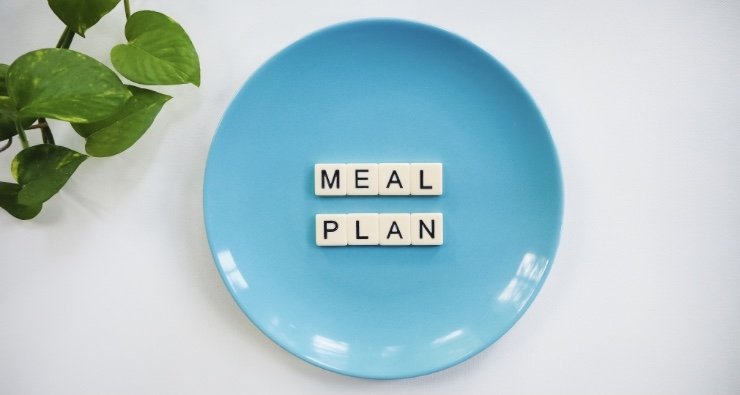Spring Clean Your Mind
By taking a minimalist approach, you could reap the benefits of mental clarity.
As a change in the season arrives, now is the perfect time of year to consider a spring clean. There is much satisfaction to be gleaned from a good decluttering session and spring cleaning is regularly encouraged by experts for its therapeutic qualities. Research proves an organised, clean and tidy home leads to decreased stress, reduced anxiety, increased creativity, and improved moods. So far, so good, right? But before you reach for the Marigolds have you considered using the same spring cleaning techniques for your mind?
Here are five ways to strip back superfluous clutter in the mind and help save space for thoughts and decisions that really matter – along with some top tips from transformational and mindset coach, Gillian Fowler, of Usana Mindset, an organisation that encourages spiritual growth and development through coaching and mentorship.
Decisions, Decisions
The average adult is said to make up to 35,000 decisions every day, add to that the worries and uncertainty in the modern world, and it’s little wonder we can be left feeling mentally drained by nightfall. Experts recommend taking some of these decisions out of the equation to increase productivity elsewhere. By planning ahead, creating routine and making low-level decisions ahead of the game you can actually cut “cognitive load” allowing you the time and head space to concentrate on other more important things.
Gillian advises taking the opportunity to plan your work days and arrange your weekend ahead of schedule. On a Sunday, choose your outfits for the week, write a weekly meal plan, and exercise schedule. Creating and sticking to plans creates structure and ease around your week.
Free Your Mind
On top of all those decisions, according to Dr Fred Luksin of Stanford University, an adult has approximately 60,000 thoughts per day, which is an incredible amount of data to process. Much of this information will pass by as a fleeting moment, whereas some become stuck on repeat, as we try to process and file these away. The feeling of being overwhelmed can occur if we do not find a healthy way to handle all that mind data.
You’re probably very familiar with mindfulness and many studies have shown the benefits of regular meditation and mindfulness exercises. By directing all your attention to the present moment and focusing solely on your breathing you can increase relaxation, happiness, self-awareness and concentration while reducing stress, anxiety, depression and fatigue. It is thought that regular mindfulness exercises practised over eight weeks can actually lead to the formation of more folds in the prefrontal cortex of the brain. These extra folds will help the brain enhance its performance, in turn having a positive impact on your ability to think more clearly.
Healthy Body, Healthy Mind
Our bodies and minds are inextricably linked. If we eat well, drink more water and less alcohol, sleep the recommended eight hours and exercise regularly we feel good physically. And when we focus on bettering ourselves, we send positive messages to the brain telling it how good we’ve been. This leads to improved self-esteem and tunes out any negative chatter in our minds.
Write It Down Or Sketch it Out
Humans are bombarded with information from the moment we open our eyes. This can be overwhelming and make us stressed. If your brain storage is reaching maximum capacity, Gillian suggests trying to make sense of all the chatter going on in the mind by putting your thoughts down on paper. She states this helps you to simplify what you’re thinking and understand what you’re feeling in that moment. The exercise itself doesn’t need to be structured, but simply allows your thoughts to flow from the mind to paper. Let yourself write words, draw pictures, doodle or even capture voice notes, to help clear any blockages.
Perhaps you’ll find solace in to-do lists which are updated each day, or journal writing. Or maybe you’re more of a visual person who will find positive behavioural changes through the use of sketches, imagery or mind mapping. Whichever method suits you, this strategy is a great way to clear out the excess information taking up room in our overstimulated heads.
Let It Go
We’ve all been hurt by someone we love and trust, a parent, child, partner or friend, and this causes anger, sadness and confusion - all feelings that take up valuable head room.
By dwelling on these past events, negative thoughts can crowd out positive feelings, making rational decision-making difficult.
Neuro-linguistic programming (NLP) is a powerful, effective psychological approach to help you identify, understand and, where necessary, change behaviours and mindset. As a qualified NLP practitioner, and a professional in helping ease ‘old’ emotional or physical pain, Gillian believes learning how to let go is the key to freeing yourself from old emotional pain.
By letting go, we make the conscious decision to move away from the role of victim and release the control and power the person had on your life to bring a sense of physical, emotional and spiritual wellbeing.
For more information about Gillian Fowler and her techniques visit usanamindset.com





